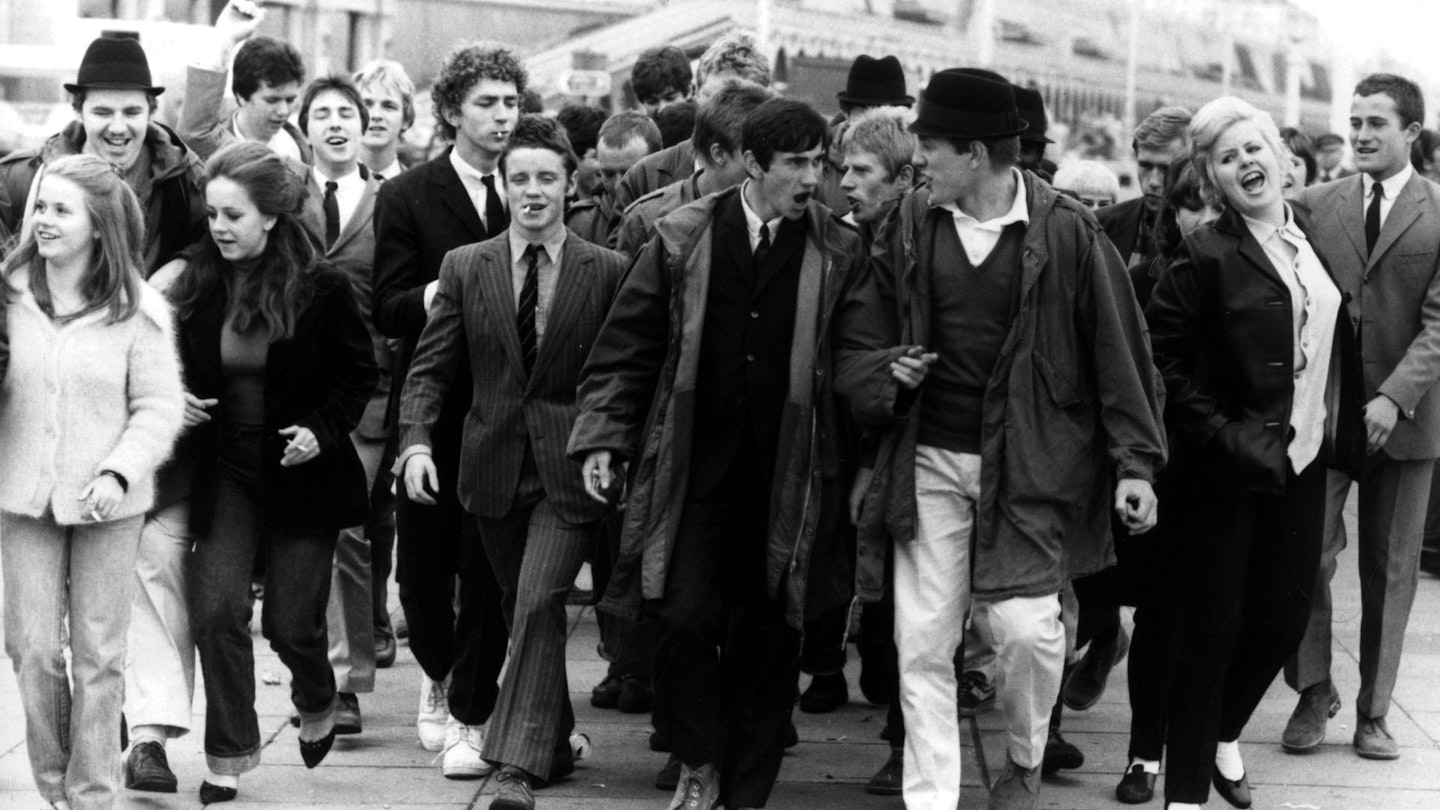An iconic ode to fallen youth of the Mod variety that has picked up a cult following mainly due to its hip imagery, its so-called grasp of the teen identity, and the fact it was based on an album by The Who, granting Pete Townshend a screenplay credit. There are some fine soap-operatics, and the rough-edged depiction of the period, the mid-‘60s with its fraught air of violence, feels pungently real. And Phil Daniels, in a role he has never quite shaken, is strangely charismatic (given he is supposed to represent the ordinary boy) as the scooter riding anti-hero Jimmy.
Director Franc Roddam is caught between stools, he wants to depict an era he knew well, to give a documentary vibe of headiness and rebellion, building up to a Bank Holiday confrontation with the teddy boys heading for Brighton beach. Yet, he is also having to deal with Townshend’s teen-death-dream thing — a mood piece full of stark symbolism and the much-debated significance of the downer ending. It is not a satisfying fit; the film is youthful and vague, gritty and quite weird.
It’s reputation is better founded on the sharp, compelling recreation of the era, and there are some striking performances to go along with Daniel’s tormented Jimmy: Leslie Ash is frail and beautiful as Steph, the girl who will force Jimmy to re-evaluate for the worse; Gary Shail, Philip Davis and Mark Wingnett froth and bubble with all the bloody-mindedness and energy of bad-youth as his Mod buddies; while Sting looks statuesque and icy without having to do much as Ace Face, a Mod fashion-icon, gang leader and Jimmy’s hero. When he, also, proves to have a humble side to the cool sheen, Jimmy starts to see through the whole mystique of this tribal world. It’s a haunting note, growing up is about losing your ideals.
